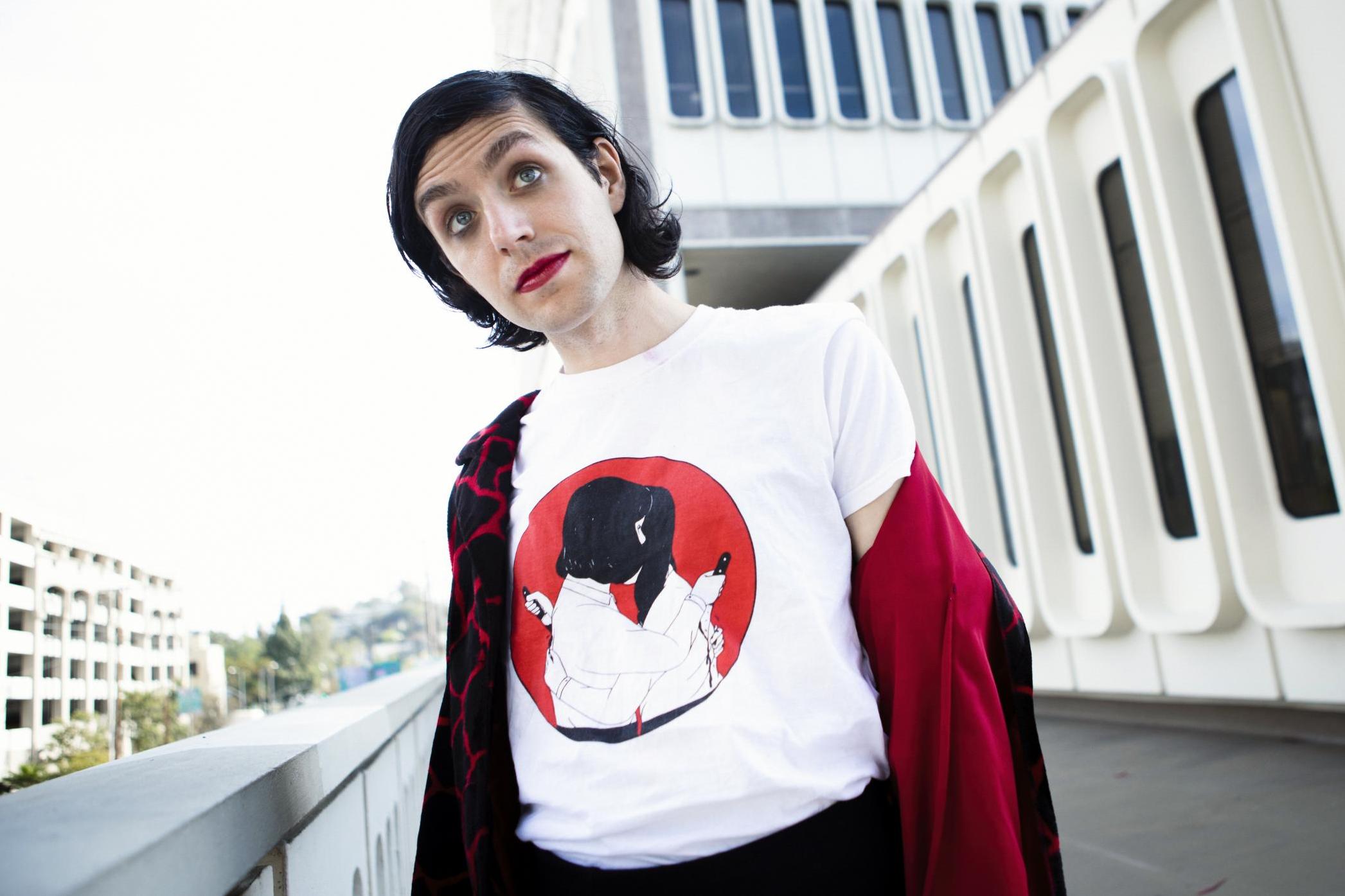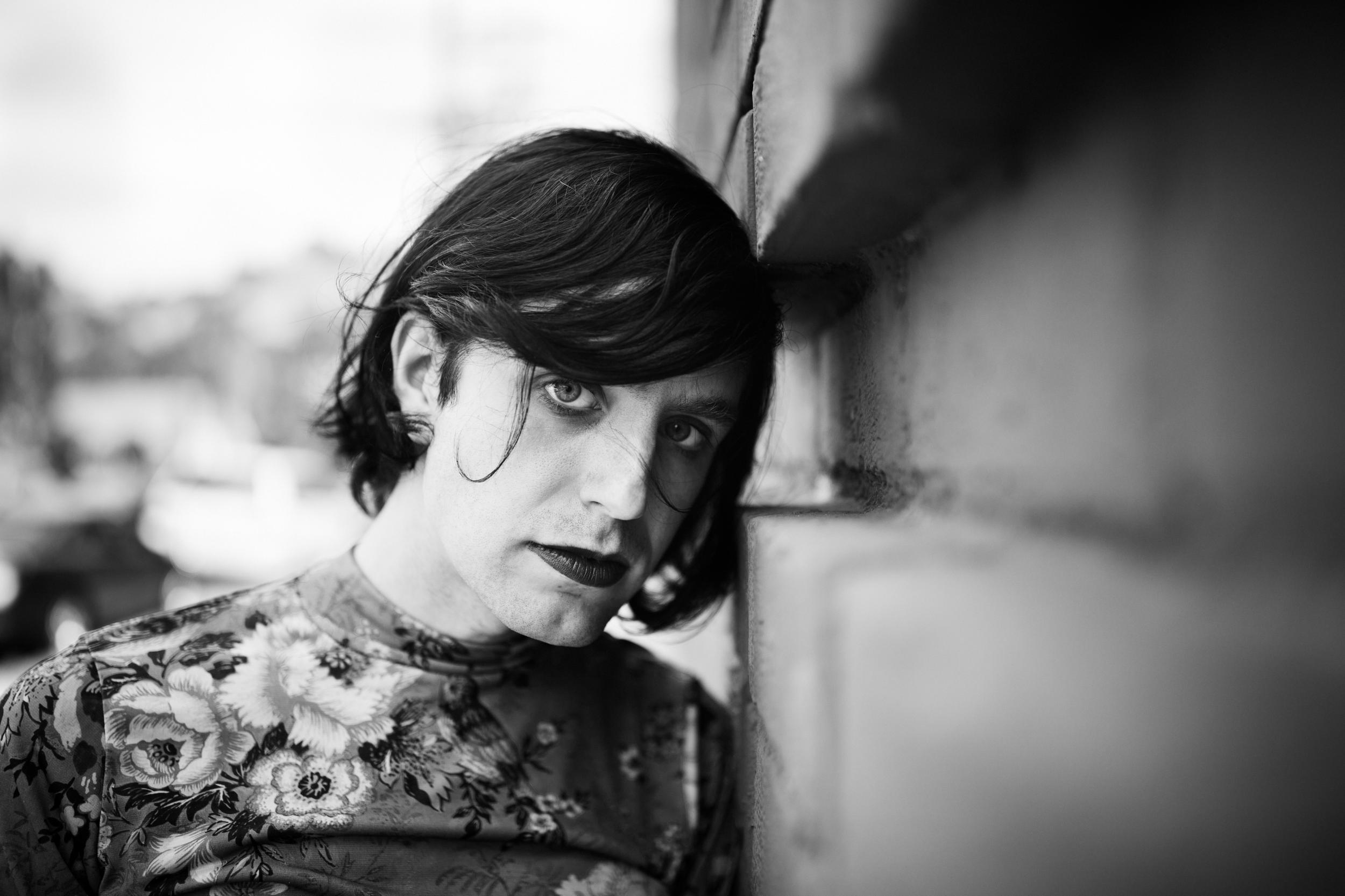Ezra Furman: ‘The rich trying to kill the poor ruins my day, again and again’
Ahead of the release of his eighth album, ‘Twelve Nudes’, the Chicagoan musician talks to Alexandra Pollard about gender non-conformity, living under the patriarchy and why he doesn’t share as much with journalists anymore


Your support helps us to tell the story
From reproductive rights to climate change to Big Tech, The Independent is on the ground when the story is developing. Whether it's investigating the financials of Elon Musk's pro-Trump PAC or producing our latest documentary, 'The A Word', which shines a light on the American women fighting for reproductive rights, we know how important it is to parse out the facts from the messaging.
At such a critical moment in US history, we need reporters on the ground. Your donation allows us to keep sending journalists to speak to both sides of the story.
The Independent is trusted by Americans across the entire political spectrum. And unlike many other quality news outlets, we choose not to lock Americans out of our reporting and analysis with paywalls. We believe quality journalism should be available to everyone, paid for by those who can afford it.
Your support makes all the difference.I’m a shy person whose very presence has become a confrontation,” says Ezra Furman, absently pulling on the skin of his Adam’s apple. “I think that’s true of a lot of queer people.”
It’s a sweltering day in London, and the Chicagoan musician – not really dressed for the weather in a sheer floral shirt, skirt, black tights and smudged red lipstick – is holed up in his manager’s living room to promote his eighth album, Twelve Nudes, out on Friday. Isn’t it hot, I say as I arrive. “I think every time we complain about the heat, it should be natural to complain about billionaires and multinational corporations,” he replies. Small talk over.
There is plenty that’s confrontational about Furman. The 32-year-old’s music is defiant, even animalistic, his voice both gentle and unwieldy, quivering falsetto giving way to guttural cries. Mixing Fifties doo-wop, Sixties garage rock, Seventies glam and Nineties grunge, he sings about depression, gender-fluidity and being Jewish, often kicking back against the increasingly desperate state of the world.
In person, though, Furman, is disarmingly gentle. He speaks slowly and quietly – cracking his knuckles and drawing patterns in a pool of spilled water as he speaks – often starting an answer before retreating halfway through. “I started to realise…” he says at one point, before a 10-second silence. “Let me stop myself. I don’t have that thought together yet.” Shall we come back to it? “Perhaps.”
But when Furman does have his thoughts together, he is articulate and passionate. He speaks eloquently, for example, about how it feels to move through the world as a queer person. After starting off as the frontman of indie-rock band Ezra Furman and The Harpoons in 2006, Furman went solo in 2012 with The Year of No Returning, which was followed a year later by the critically adored Day of the Dog. In 2015, around the time of the brilliant, bruising Perpetual Motion People’s release, he began to wear dresses and lipstick onstage, and came out as bisexual and gender-fluid in an op-ed for The Guardian. “My body was made this particular way,” he howled on “Body Was Made”, “There’s really nothing any old patrician can say / You social police can just get out of my face.”
“I’m visibly different most of the time,” he says now. “Just being gender non-conforming opens you to trouble from strangers. And violence. Visibility creates a problem in my life. A real problem. Or a bunch of ’em. But at the end of the day, I don’t really feel like I have much of a choice. It’s more of a danger to my wellbeing to not be openly gender non-conforming than to be.”
He sighs. “Sometimes I wonder what there is to say about it. Or maybe I feel tired of obsessing about it, caring about how I said it, worrying about people’s reaction and such. My dream has always been that it could be a non-issue, or at least, as much of an issue as any cherished part of who I am. But I mean, the fact that I’m Jewish doesn’t come up nearly as often.” Furman, whose grandparents survived the Holocaust “because they were paranoid enough to leave home”, is an observant Jew who never performs on the Sabbath and recently considered quitting music to train to be a rabbi.
There’s not, like, royals beheading peasants like there used to be, but they just found a different way to dress it up
He didn’t, though – he recorded another album instead. “Oh yes, we made one, didn’t we?” he says, smiling. A good one, at that – though it’s hardly easy listening. Hastily recorded in the summer of 2018, Twelve Nudes is an urgent, anxious record – louder, gruffer and more acerbic than its high-concept predecessor Transangelic Exodus. Furman says it is “a controlled forest fire of negativity”, a rousing call to arms shot through with a note of panic and despair. “It’s not the way I want to be and it’s not the way I am,” he says. “I’m peaceful, I carry this peaceful world with me wherever I go. I guess what it really is, is admitting that things feel bad. To me, there’s actually something very hopeful in that. There could be some utility to expressing deep negativity.”
Take “Trauma”, on which he decries the vast gap between the rich and the poor, the powerful and the powerless: “The mind snaps and economies collapse / when the one who works hardest gets the smallest reward,” he sings, his voice breaking above trembling electric guitars. “The big scam is nobody gives a damn / that the penthouse suite depends on the bottom three floors.” It is a sort of half-hearted battle cry, both dogged and despondent. “The rich trying to kill the poor ruins my day, again and again,” says Furman. “There’s not, like, royals beheading peasants like there used to be, but they just found a different way to dress it up. Working people are killing themselves to get by, and they’re working for billionaires.”
Enjoy unlimited access to 100 million ad-free songs and podcasts with Amazon Music
Sign up now for a 4 month free trial (3 months for non-Prime members)
Enjoy unlimited access to 100 million ad-free songs and podcasts with Amazon Music
Sign up now for a 4 month free trial (3 months for non-Prime members)
Furman wrote the chorus of “Trauma” – “Years roll on and we still have not dealt with our trauma” – a little while after the verses. “I took the word ‘trauma’, and it felt like throwing it up in the air like a handful of ashes and seeing where they all go. It’s a word that carries so much with it. It’s an unpredictable word, it’s so charged, it’s like a piece of lightning. I was like, ‘How can I say the word like this?’ But it’s a song about the brutality of people out for power, and the trauma that it causes for almost everyone else. And I think it does cause real trauma. It’s traumatising to grow up in our world at all. And I was… I dunno. Summer 2018, man.” He shakes his head. “I was in the grip of stories of prominent rapists not being punished for their crimes. People who have been hurt see that, and it’s like, ‘No justice has been done for me, and I will be hurt again, people like me will be hurt, and there won’t be consequences for the perpetrators.’ It’s a brutal thing to watch, and it’s more brutal depending on your personal experience with assault.”

People with personal experiences of assault are depressingly abundant, says Furman, as are people who have committed assaults. “The real blind spot is when you don’t realise that it’s people you talk to in everyday life,” he says of the latter. “A lot of the people who’ve been outed as rapists are people who’d be tremendously interesting to talk to. Like, you would want to be their friend. And then you start to realise, ‘Oh, this could happen to me? This could be a lot of people that I know? I probably have friends who have done things in this category.’ So how does a seemingly cool person do something horrible?”
In Furman’s mind, “it’s because they’re not looking out for it. They’re not swimming against the tide. There’s a tide that just takes people into it who aren’t looking out for it. That’s why to be an anti-sexist, you can’t just not be sexist – you actually have to be an anti-sexist. You have to be an anti-racist to not be racist. Because it’s just a cultural tide that will pull you into it if you’re not swimming against it.”
Twelve Nudes also helped Furman process his own personal damage. “I have my own trauma of living under certain oppressive systems,” he says. “And I think the feeling of the whole record is: years are going by, and we haven’t dealt with how bad it feels to live under patriarchy, to let the rich get away with almost anything, and to let the poor get away with nothing and be blamed for things they didn’t do. Somehow, it started to all seem like one thing, one system – patriarchy and hyper-capitalism sort of meld into this status quo that continues to damage me and my friends and other people.”

Then again, Furman is experiencing “increasing stability and happiness in my personal life”. He won’t go into detail, though. “I’m telling less than I used to about my personal life to folks like you,” he says. “It’s a good feeling to not tell people what’s going on. And I know I’d be judged, you know? Relationship status or whatever it is.” By straight people or queer people? “You never caaaan tell,” he sings. “You never can tell who’s gonna say what. My old thought was, ‘I don’t care what people say, I don’t even know these people.’ But I have to admit it affects me. On a bad day, that s**t can be devastating. It can be destabilising in a deeper way than I even realised.”
There’s another long silence. “But the heart of the matter? What’s going on in my spirit? I don’t hold back on that.”
Twelve Nudes is out on Friday
Join our commenting forum
Join thought-provoking conversations, follow other Independent readers and see their replies
Comments